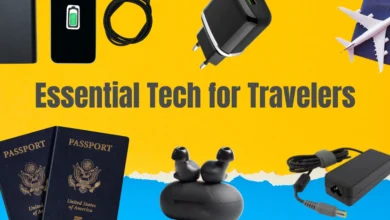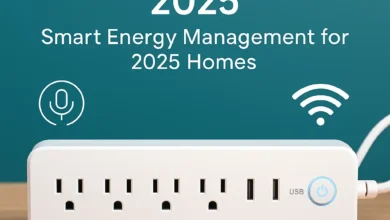
Voice Search Optimization for Tech Blogs in 2025
Remember when we used to “Ask Jeeves” to search the internet? Now, it’s all about chatting with Alexa, Google, or Siri while making coffee or folding laundry. Welcome to 2025. If you’re running a blog and haven’t explored voice search optimization for tech blogs, it’s time to lean in—because the way people find information has fundamentally changed. Whether you’re trying to figure out how to optimize content for voice search, stay updated with voice search trends 2025, implement smart assistant SEO strategies, weave in conversational keywords for blogs, or simply improve blog visibility with voice search—you’re not behind, you’re just about to level up.
And just to be honest? This transition isn’t always smooth. It took me multiple failed posts, missed snippets, and a lot of late-night editing fueled by chai and disappointment to get it right. So if you’re overwhelmed, you’re in good company.
Why Voice Search is a Bigger Deal Than Most of Us Realized
Typing is officially out. From Gen Z students to busy moms to office workers walking their dogs, everyone’s using voice assistants. According to research, over 70% of users will rely on voice by the end of 2025—and not just for weather updates or setting timers.
The way people search is more natural, more human, more… conversational.
As a blogger, you can’t afford to be the digital equivalent of Blockbuster in a Netflix world. This is your moment to evolve.
Don’t Speak Like Google—Talk Like Chandler Bing
Let’s be real: we don’t say “best budget smartwatch 2025.” We say, “Hey Siri, what’s the best cheap smartwatch that doesn’t suck?”
That’s the power of conversational keywords for blogs—phrases that sound like they were said in a group chat or over dinner. Your audience isn’t typing like robots. They’re talking like humans. So write like one.
One thing I learned the hard way? Trying to game SEO with awkward keywords doesn’t work anymore. It kills your voice. And your soul a little.
What does work? Real questions. Like:
- “Which smartwatch works well for college students?”
- “How do I make my tech blog show up in voice search?”
These sound natural, fit into your content flow, and fulfill real intent—exactly how you tackle how to optimize content for voice search.
Featured Snippets: Your Blog’s Chance at Hollywood Fame
When smart assistants answer voice queries, they pull from the web’s VIP section—featured snippets. If your content makes it there, you’re the first voice heard. That’s gold.
Getting featured isn’t luck. It’s structure. Use clear headers with direct questions, answer them in 30–50 words, and format content with bullet points when needed.
Trust me—I used to write these sprawling intros trying to impress Google. But when I simplified things? Boom. Featured snippet city.
So, yes, structured content is one of the strongest smart assistant SEO strategies. Be precise, brief, useful.
Mobile and Local Are the Dynamic Duo-Voice search optimization for tech blogs
Let’s take a moment to admit something—most of us don’t think “local” matters for blogs. I didn’t. Until I saw my analytics spike because I mentioned a local tech store in Karachi. That’s when voice search trends 2025 clicked for me.
Most voice searches happen on phones. They’re quick, in-the-moment, and local.
Here’s what you can do:
- Mention relevant cities, events, or local news in your posts.
- Include local product availability or delivery options.
- Make sure your blog loads fast and looks great on mobile.
The result? You improve blog visibility with voice search in a very real, very regional way.
Be Real, Relatable, Transparent-Voice search optimization for tech blogs
This one’s big: write like a human, not a textbook. And don’t be afraid to share when you mess up.
I’ve tried optimizing for voice search with tools I didn’t understand, followed SEO checklists blindly, and even published robotic-sounding posts. It flopped. Hard.
What worked was writing like I talk. Keeping it light, funny, and sometimes vulnerable.
Here’s an example:
Ever asked Alexa something and she replied with a completely unrelated Wikipedia article? Been there.
That little bit of honesty creates connection. That’s what people remember—and what keeps them coming back.
Voice search optimization for tech blogs is about trust. Trust that your content will sound natural when read out loud. Believe you’re not tricking the system. Most importantly, know that you’re you.
Your Old Posts Deserve a Comeback Tour-Voice search optimization for tech blogs
I’ve got posts from 2021 that were basically invisible until I gave them the Beyoncé-revival treatment: structure, clarity, voice-friendly rewrites.
If you’ve got evergreen content, now’s the time to refresh it. Here’s how:
- Update titles and headers with questions.
- Add FAQ sections.
- Tighten up language and shorten paragraphs.
- Seamlessly incorporate conversational keywords for blogs and voice search trends 2025.
This isn’t just maintenance—it’s strategy. You’re re-introducing your greatest hits to a brand-new audience. No autotune needed.
Understand Intent. Serve It Like Mocha on a Cold Day
Voice queries aren’t just about info—they’re about why. When someone says, “Best tablet for online classes in Pakistan,” they want more than specs. They want solutions. Help. Reassurance.
Don’t just list features. Share your experience. Explain trade-offs. Add empathy.
Here’s an example:
If you’re a student dealing with spotty Wi-Fi and tight budgets, the Galaxy Tab A9 gets you through online classes without breaking the bank—or your patience.
That’s how you fulfill intent. And in case it wasn’t clear—that’s a boss-level smart assistant SEO strategy move.
Transparency Builds Trust—And Trust Gets You Found
Let me say it plainly: your readers are smart. They can tell when you’re bluffing. So be honest.
Don’t recommend products you’ve never tried just to earn affiliate cash. Don’t pretend voice search is easy if you’re still figuring it out. Share the learning. Share the mess.
And yes, you might rank a bit slower—but when you do rank, you’ll attract readers who stick around. That’s how you improve blog visibility with voice search for the long haul.
And if you mess something up? Admit it. Update it. Move on. That’s what real bloggers do.
Final Thoughts: From Geek Speak to Genuine Connection
The future isn’t just “voice-first”—it’s people-first. Readers don’t just want answers. They want honesty. Personality. Real help.
That’s where voice search optimization for tech blogs comes in. By embracing conversational keywords for blogs, staying on top of voice search trends 2025, using solid smart assistant SEO strategies, and aiming to improve blog visibility with voice search, you’re not just optimizing for AI—you’re optimizing for humans.
Let your blog sound like you—quirks, flaws, humor, and all.
Because the best voice in voice search? Is yours.




